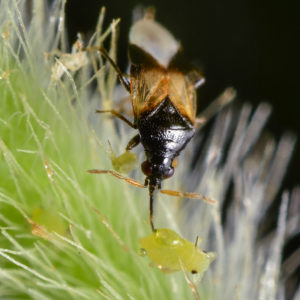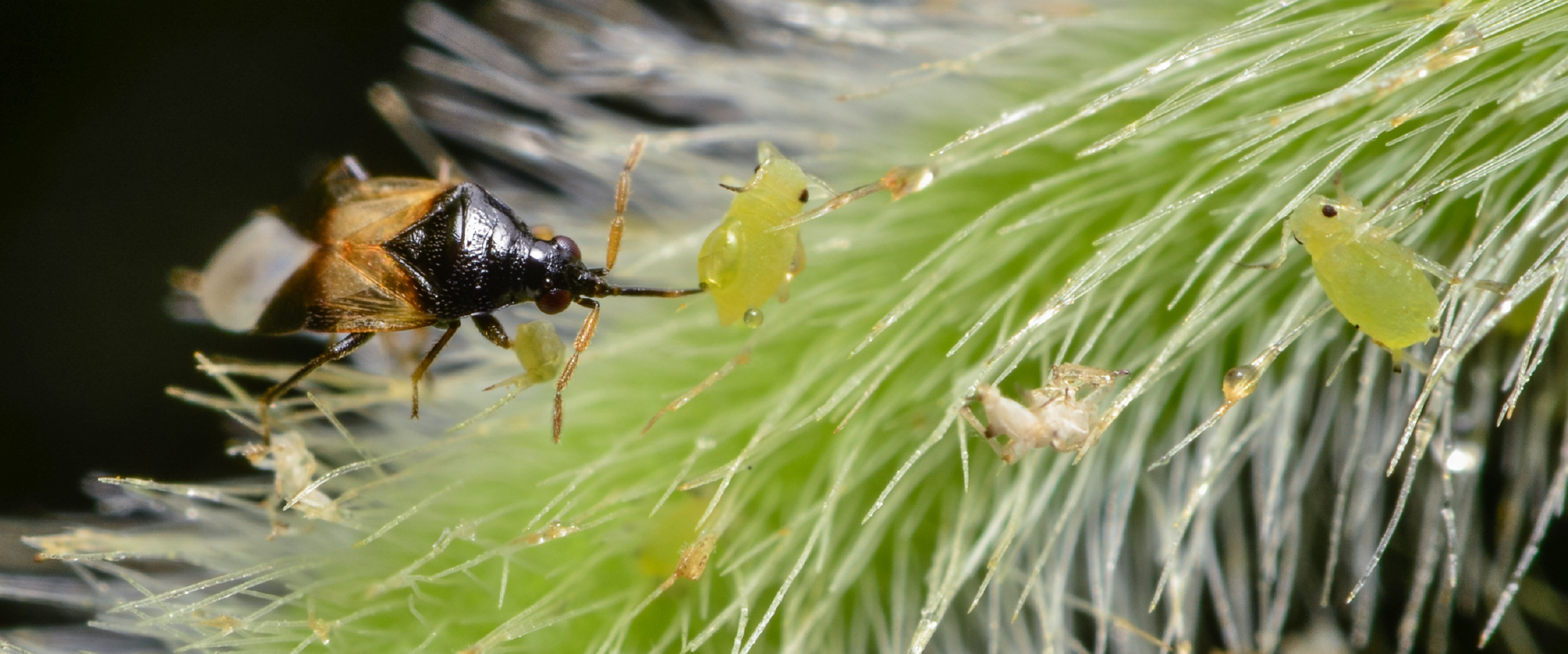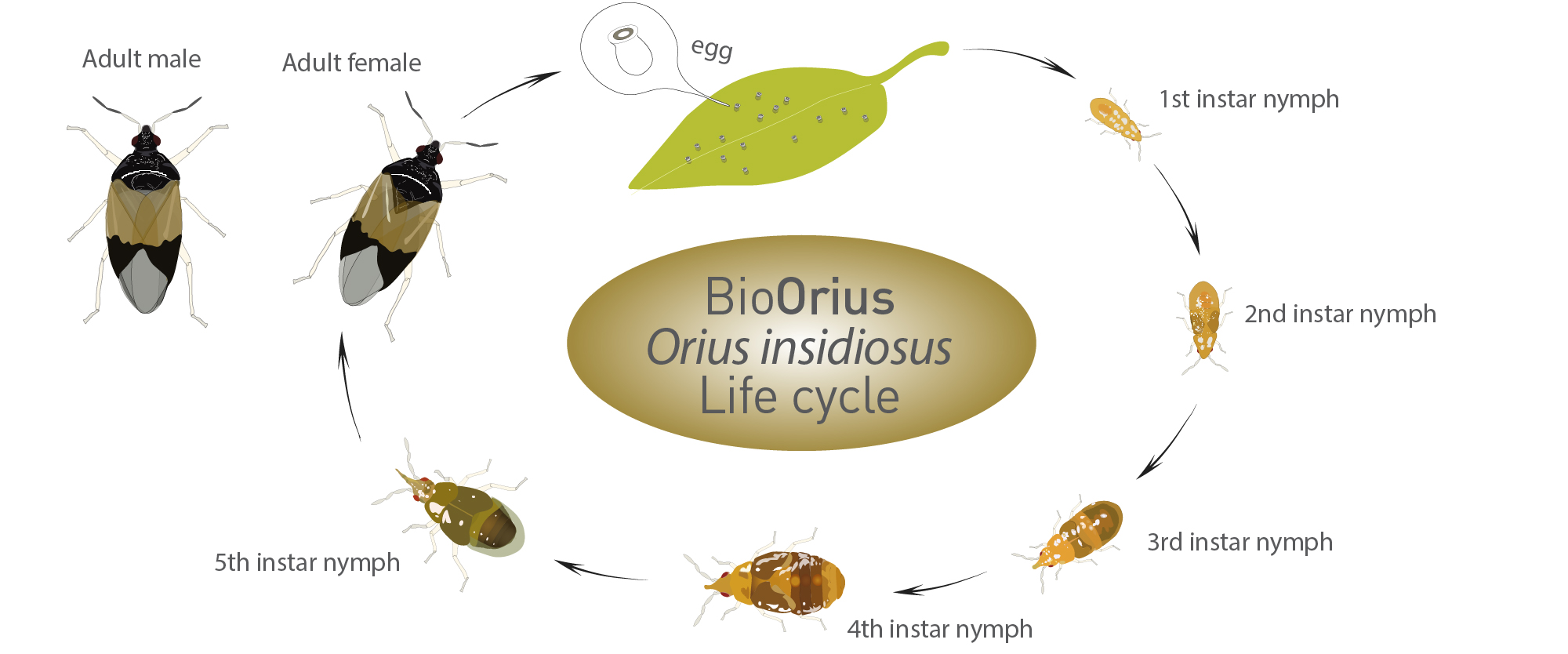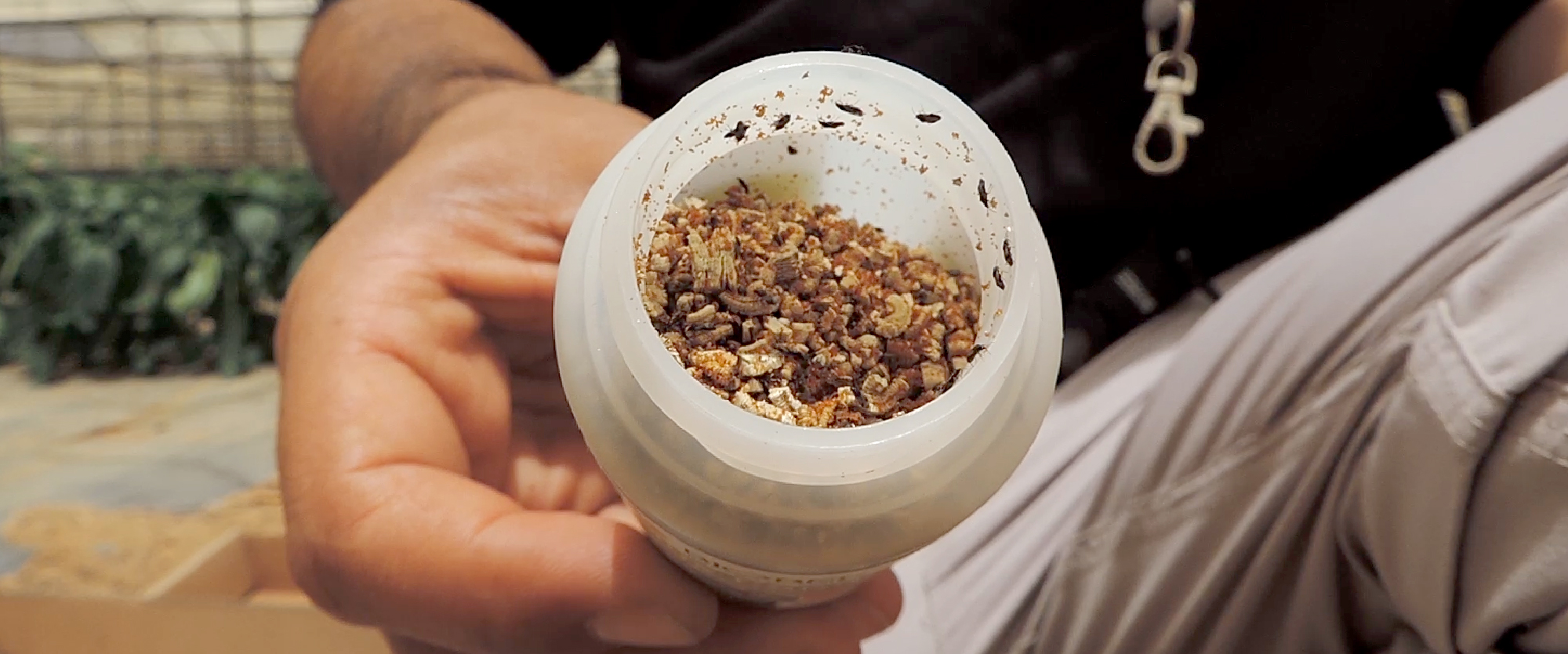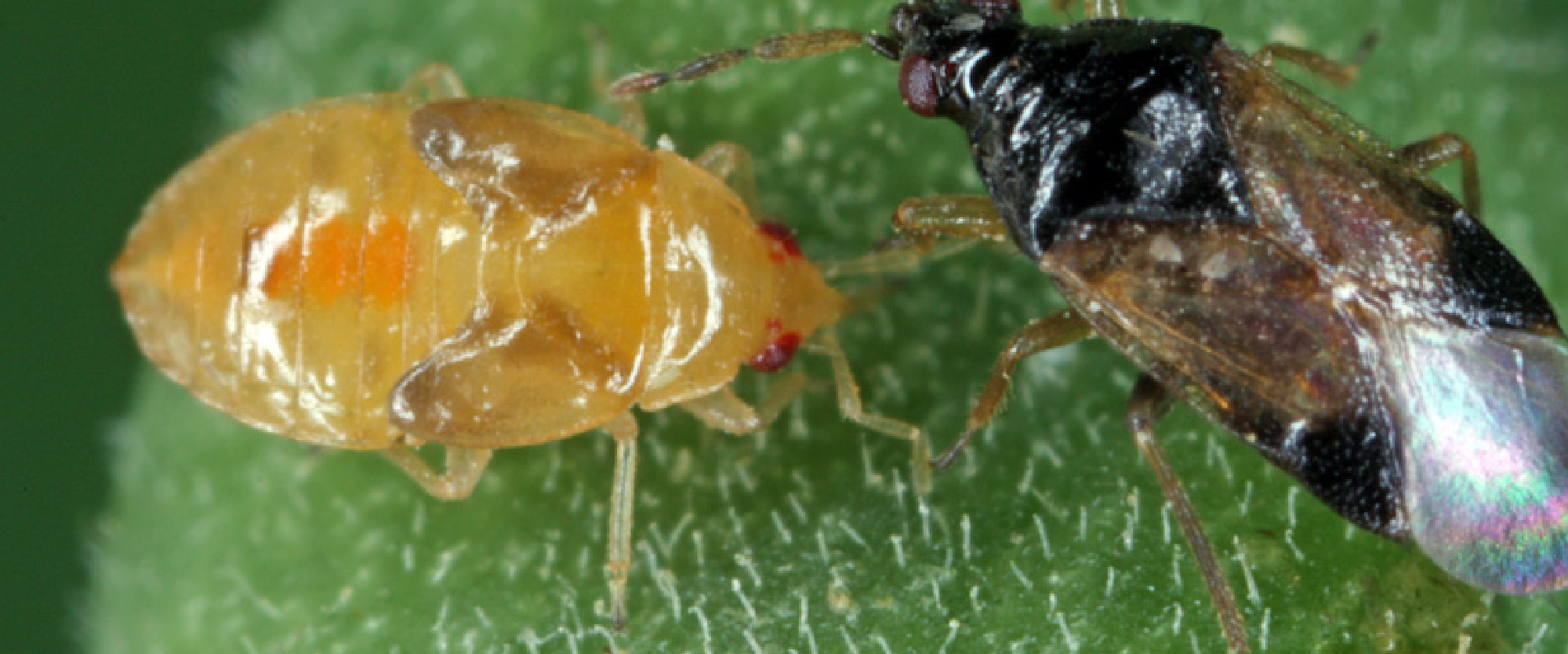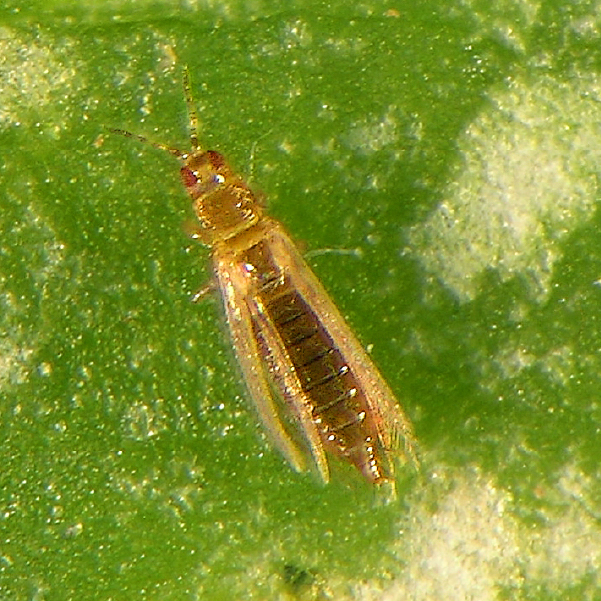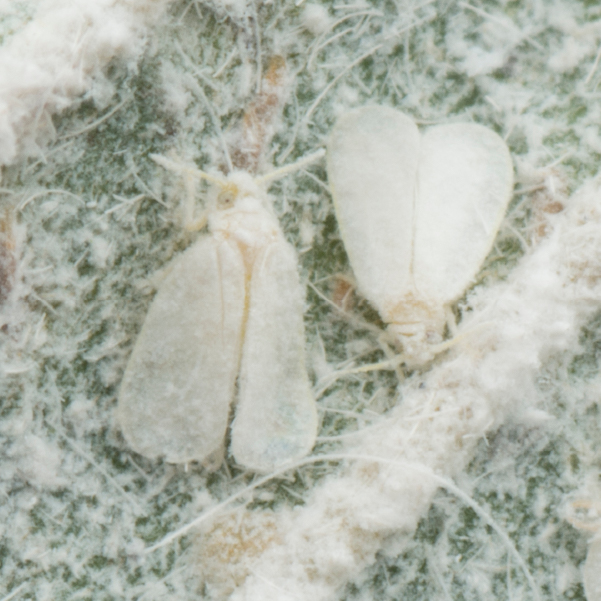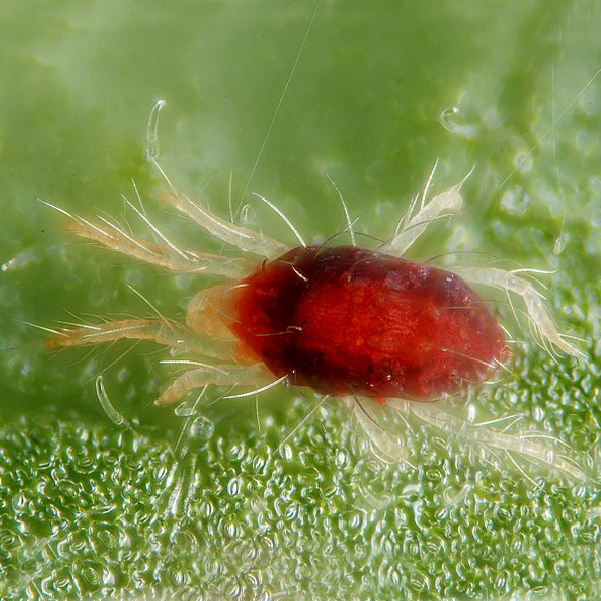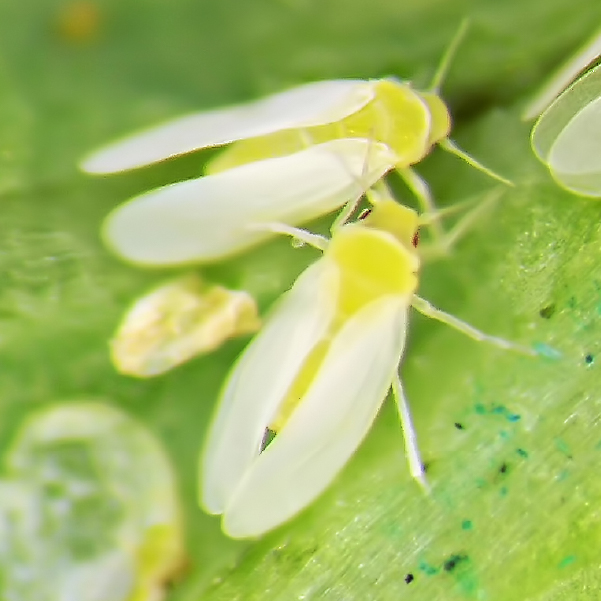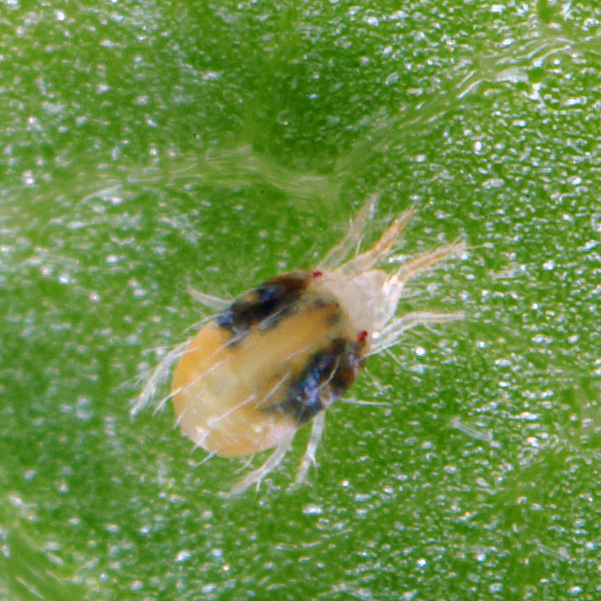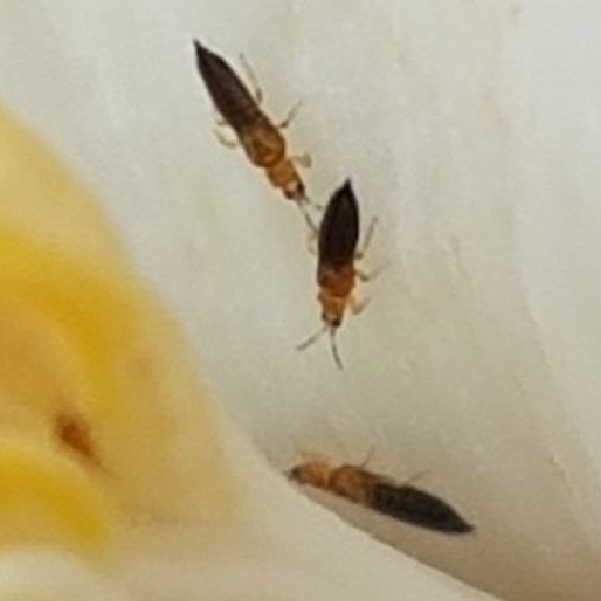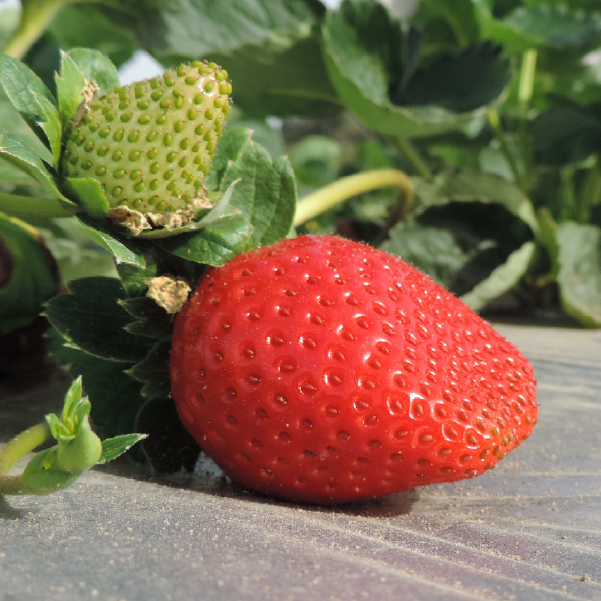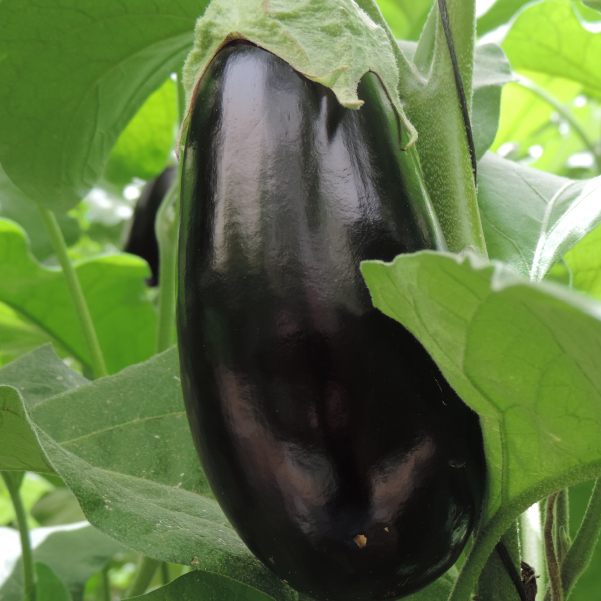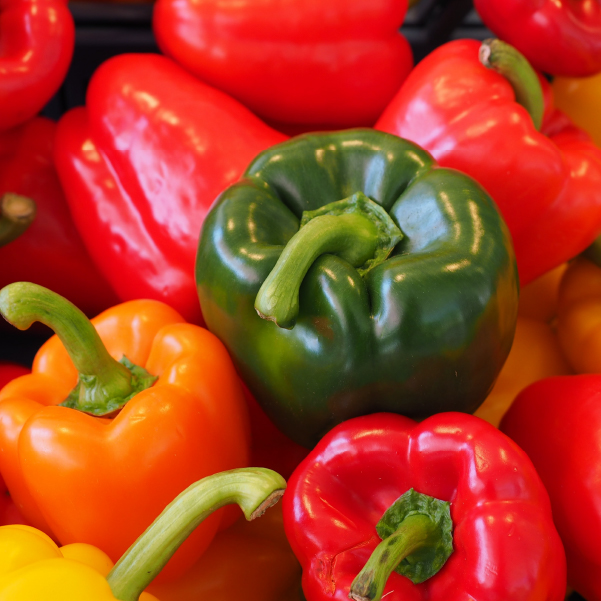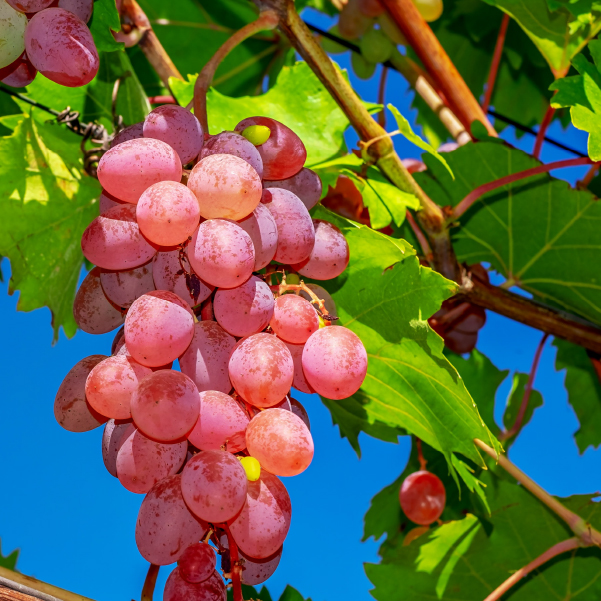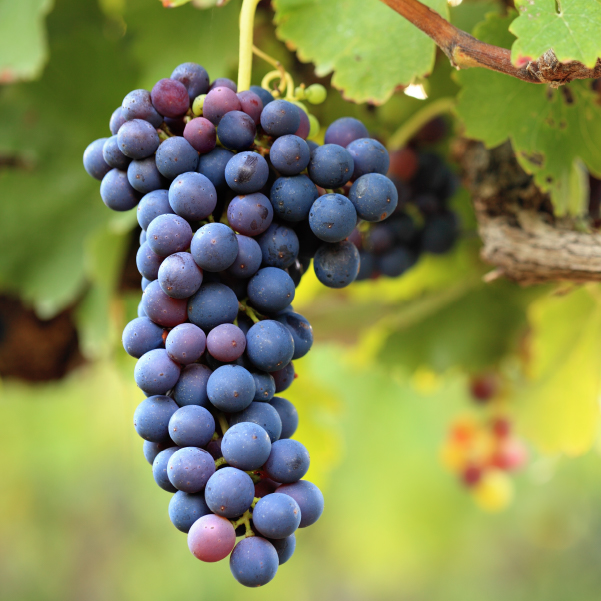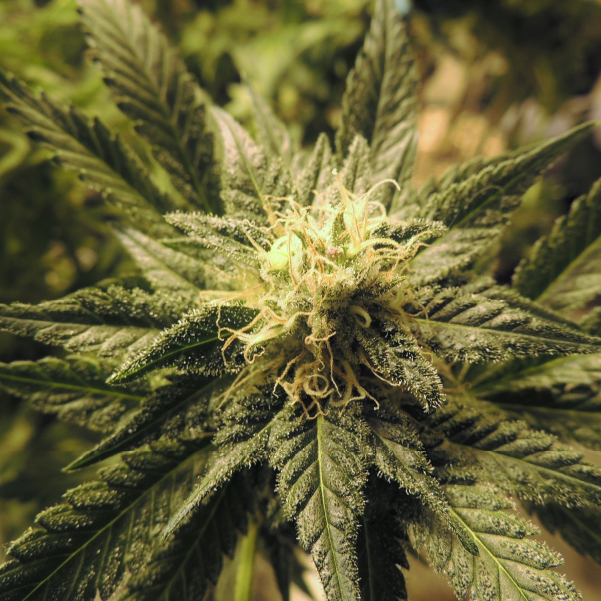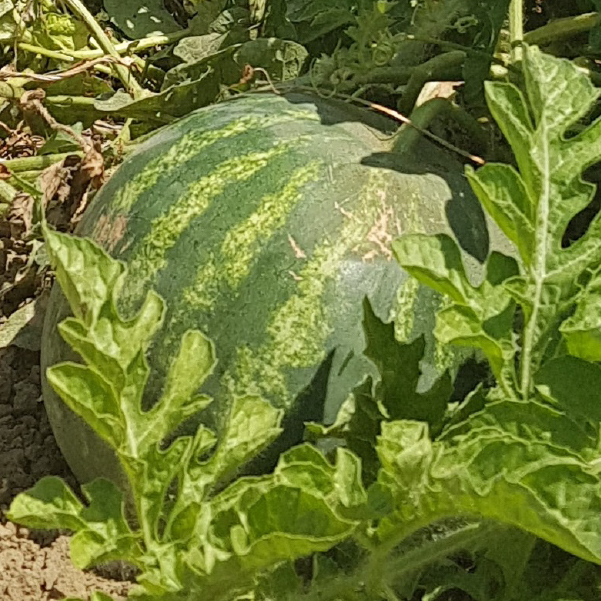BioOrius (Orius insidiosus) also known as the insidiosus flower bug, is a predatory minute pirate bug equipped with piercing-sucking rostrum and two pairs of wings, the front pair being partially rigid. Omnivorous, it feeds on plant pollen, sap and a large variety of insect prey. The adult BioOrius female can lay between 150-200 eggs during her lifetime. The availability of quality feed, such as BioArtFeed (premium Artemia cysts) improves its establishment in the crop as well as its development and reproduction.
Consult with your local BioBee for product availability in your country.
Target Pests
Product
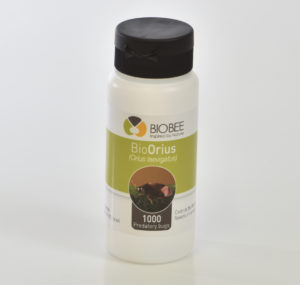
- BioOrius is packed in bottles containing 500, 1,000 or 2,000 adult predatory bugs, ready to feed. The bugs are mixed in a carrier material.
Download Product PDF
Application
- BioOrius is shipped in insulated, chilled boxes. Packaging must be kept intact until placed in the field.
- Keep in a cool location until release.
- Before application, gently rotate the bottle horizontally.
- Apply early in the morning or late in the afternoon, under relatively mild temperatures.
- Gently sprinkle on the top leaves of the plants.
The amount and frequency of the application is determined by the target crop, level of infestation, weather conditions and damage inflicted to the crop.
Before combining BioOrius with any chemical pesticide in the crop, please consult your BioBee technical field representative.
Crops
Storage
-

Storage temperature
-

Do not store in sunlight
-

Roll back & forth before use
-

Apply early morning or late afternoon
-

Store horizontally
Disclaimer
BioBee Sde Eliyahu Ltd. produces and markets biological products. Production is carried out using innovative techniques under controlled quality assurance standards such as ISO 9001:2015, as well as IOBC’s international standards for mass-production of insects. All products are tested to meet specification requirements before leaving the factory.
The success of biological pest control is affected by the crop’s initial pest population (upon application of the product), weather conditions and chemical residue present in the crop, among other possible aggravating factors.
Under no circumstance shall BioBee be liable for the outcome of the implementation in the field, as it has no control over local conditions, the application method, or the possible improper treatment/storage of the product.
